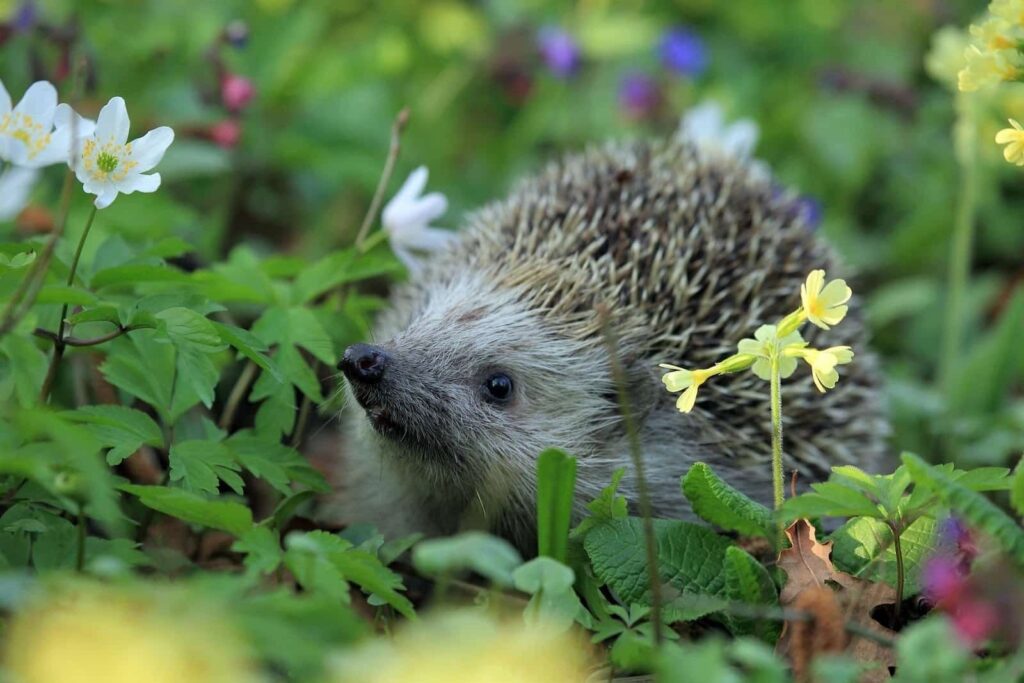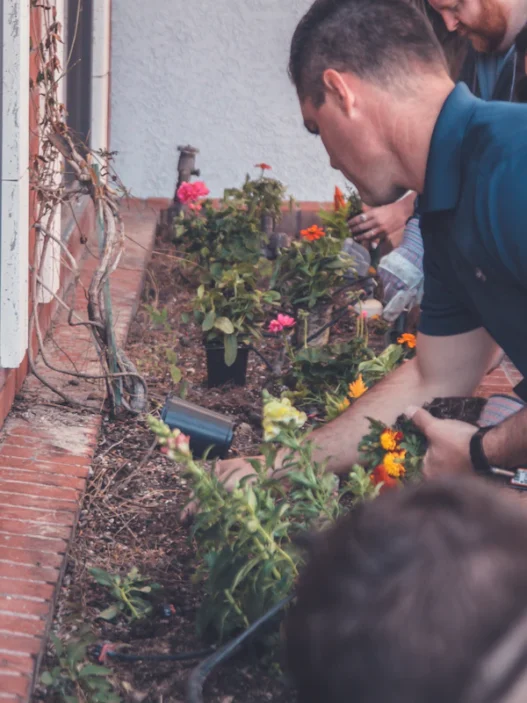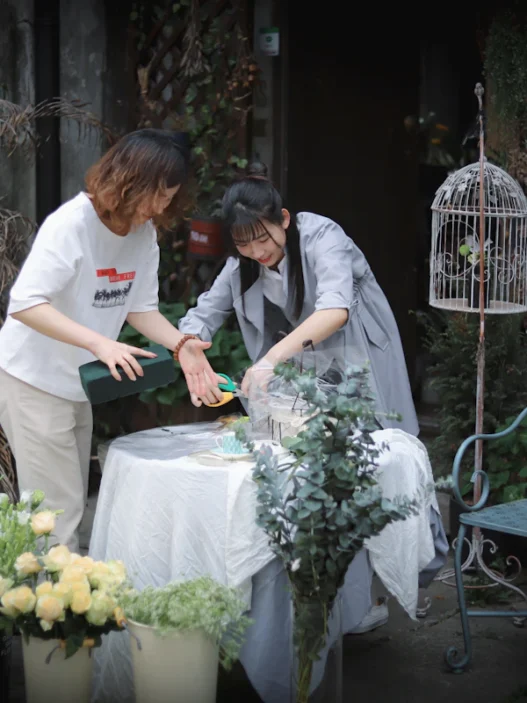Ever think about how much better your city’s air could be with a few more plants around? Urban gardens aren’t just for aesthetics—they’re a secret weapon against pollution. Here’s how your little green space can transform the air you breathe and make your neighborhood healthier.
Reducing Pollutants

Ever thought of your garden as a superhero? You might not realize it, but plants are natural air purifiers with incredible powers. Urban gardens help reduce pollutants like carbon dioxide and nitrogen dioxide, turning your green space into a powerful clean-air machine. Imagine stepping out of your house into a garden that’s actively fighting pollution for you!
Plants absorb these harmful gasses and use them in photosynthesis, effectively reducing their concentration in the air. This simple act of planting can make a significant difference in urban areas where pollution levels are high. Just think about it: a garden that not only looks good but also makes the air you breathe cleaner.
But wait, there’s more! These green warriors also trap particulate matter—tiny particles that can cause serious health issues when inhaled. Leaves and soil in urban gardens capture these particles, preventing them from entering your lungs. By planting a garden, you’re not just adding beauty to your space; you’re creating a healthier environment for everyone around you.
Increasing Oxygen Levels
We all know plants produce oxygen, but did you know that urban gardens can significantly boost oxygen levels in your community? More plants mean more oxygen, making the air fresher and healthier.
Oxygen is essential for our well-being, and having a garden full of plants can ensure a steady supply. This increase in oxygen can improve overall air quality, making it easier to breathe, especially in congested urban areas. Picture yourself taking a deep breath of crisp, clean air right in the middle of the city – that’s the power of urban gardening.
But there’s even more good news! The oxygen boost from urban gardens doesn’t just benefit humans. It also creates a healthier environment for pets, wildlife, and other plants. This ripple effect of improved air quality enhances the ecosystem, promoting biodiversity and supporting a thriving urban habitat.
Filtering Toxins

Urban gardens act like giant filters, trapping toxins and particulate matter from the air. This includes everything from car exhaust to industrial emissions. You won’t believe the difference a few plants can make!
Leaves and soil in urban gardens capture airborne toxins, preventing them from entering your lungs. This natural filtration system reduces the presence of harmful substances in the air, promoting better respiratory health. By planting a garden, you’re not just adding beauty to your space; you’re also creating a healthier environment for everyone around you.
Cooling Urban Areas
Cities can get unbearably hot, but urban gardens help cool things down. Plants provide shade and release moisture into the air through a process called transpiration. This can lower temperatures by several degrees.
Cooling urban areas with gardens not only makes them more comfortable but also reduces the need for air conditioning. This, in turn, decreases energy consumption and reduces greenhouse gas emissions. Imagine a city where the heat is manageable, and the air is cooler, all thanks to lush green spaces scattered throughout.
Reducing Dust
Ever notice how dusty cities can be? Urban gardens help reduce dust levels by trapping dust particles on their leaves. This simple action can make a big difference in air quality.
Plants act as natural barriers, preventing dust from becoming airborne. This means less dust settles on surfaces, and the air stays cleaner. Whether it’s on your balcony or a community garden, having plants around can drastically cut down on the dust in your environment. Cleaner air means healthier lungs and a more pleasant living space.
Supporting Biodiversity

Urban gardens aren’t just good for air quality; they’re also a haven for wildlife. Birds, bees, and butterflies flock to these green spaces, promoting biodiversity in urban areas.
A diverse ecosystem helps balance the environment, supporting healthier plants and cleaner air. By creating a garden, you’re providing a sanctuary for these creatures, which in turn helps maintain ecological balance. The presence of wildlife in urban gardens also enhances the beauty and vibrancy of the cityscape. Who wouldn’t want to see butterflies fluttering around their neighborhood?
Enhancing Mental Health
Believe it or not, the air quality improvements brought by urban gardens can also boost your mental health. Clean, fresh air has been shown to reduce stress and improve overall well-being. Imagine finding a peaceful retreat in the middle of the city.
Spending time in a garden, and breathing in clean air can have a calming effect on the mind. It’s a great way to escape the hustle and bustle of urban life and reconnect with nature. Enhanced mental health means a happier, more productive you. Urban gardens provide a simple yet powerful way to improve both your physical and mental health.
Creating Green Spaces

Urban gardens transform concrete jungles into lush, green spaces. These areas not only look beautiful but also provide numerous environmental benefits, including improved air quality.
Green spaces act as the lungs of the city, absorbing pollutants and releasing oxygen. They also provide recreational areas for residents, promoting physical activity and community engagement. Imagine a city filled with vibrant gardens, parks, and green rooftops, all working together to create a healthier environment. These green spaces become a vital part of urban life, enhancing the quality of living for everyone.
Supporting Respiratory Health
If you have respiratory issues, you’ll definitely notice the benefits of cleaner air from urban gardens. Plants help reduce allergens and pollutants that can trigger asthma and other respiratory problems.
Cleaner air means fewer health issues and better quality of life. Urban gardens can make a significant impact on public health, reducing hospital visits and improving overall well-being. Imagine a city where breathing is easy, and respiratory health is a priority, all thanks to the simple act of planting more gardens. By supporting urban gardening initiatives, you’re contributing to a healthier community.
Climate Change Mitigation

Urban gardens play a crucial role in mitigating climate change. They absorb carbon dioxide, one of the main greenhouse gasses, and help regulate urban temperatures.
By reducing the urban heat island effect, gardens lower energy consumption for cooling buildings. This not only cuts down on greenhouse gas emissions but also saves money on energy bills. Imagine a city that’s cooler, greener, and actively fighting climate change with every plant. Urban gardens are a powerful tool in the battle against global warming, providing tangible benefits for the environment and future generations.
Transform Your City’s Air Quality with Urban Gardens
Urban gardens aren’t just about growing food or beautifying spaces—they’re a powerful tool for improving air quality and enhancing the health and well-being of city residents. From reducing pollutants and increasing oxygen levels to supporting biodiversity and mitigating climate change, the benefits are endless.
So why not start your own urban garden today? Plant a few seeds, watch them grow, and see the incredible impact they can have on your community. Cleaner air, healthier residents, and a greener planet—urban gardening is the way to go!




















